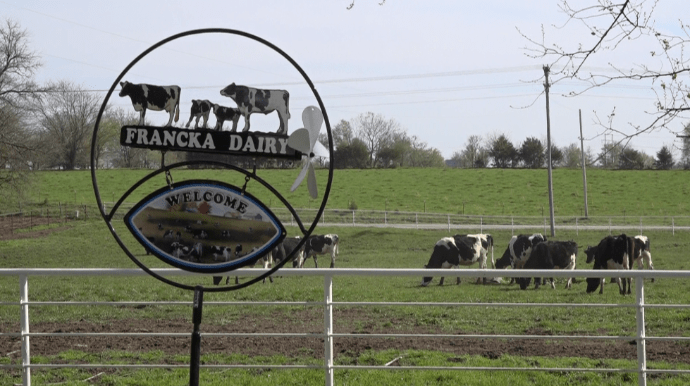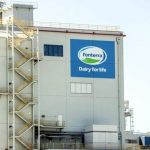
Panic buying left store shelves empty, so many grocery stores now have limits on essential items. That’s affecting the people who produce them.
Scott Francka is a fourth generation dairy farmer.
“It’s one of those things that helps me get up in the morning, I guess. Puts a smile on my face,” he said.
Francka and his family milk their cows twice a day on their Polk County farm.
“Every twelve hours. We start at one in the morning and one in the afternoon,” he said.
That milk is sold to processors who turn it into dairy products like cheese, yogurt and obviously, gallons of pasteurized milk. Demand for those things declined when schools and many restaurants closed. Then it got worse.
“Three weeks ago is when it started, and everybody was going to buy all their milk out of the stores. It was flying off the shelf,” Francka said. “Demand was really high and unfortunately, stores got to where they were putting limits on how much they were buying.”
Those limits are causing big problems for dairy farmers like Francka.
Every other day, he said, the farm produces about 22,000 pounds of raw milk. On Sunday, he had to pour it down the drain.
“We dumped, I believe, 19,980 pounds I believe,” he said. “You put your heart into it. To watch your product flowing down the drain is just heartbreaking and emotional.”
Now, the Missouri Department of Agriculture and the State Milk Board are calling for grocery retailers to stop telling customers how much milk they can buy. Governor Mike Parson agrees.
“I would hope they’d take a different view of that and allow those farmers to sell their product and let the consumer get what they want,” Parson said.
According to Francka, this is happening all across the country.
“It’s thousands of gallons over the entire United States and different co-ops and farms,” he said. “We’re talking a lot bigger picture than just what’s happening here.”
Francka said there’s an easy way for Missouri shoppers to support their local farmers for generations to come.
“Throw some extra cheese on your tacos. Pour an extra glass of milk. It’s healthy. Just use a little bit of extra product. It’ll go a long ways for us,” he said.
Francka still got paid for the milk he lost, because of a contact with a marketing co-operative. He said milk haulers, on the other hand, are not so lucky. Francka is hoping that was the one and only time he’ll have to pour out his product.
























